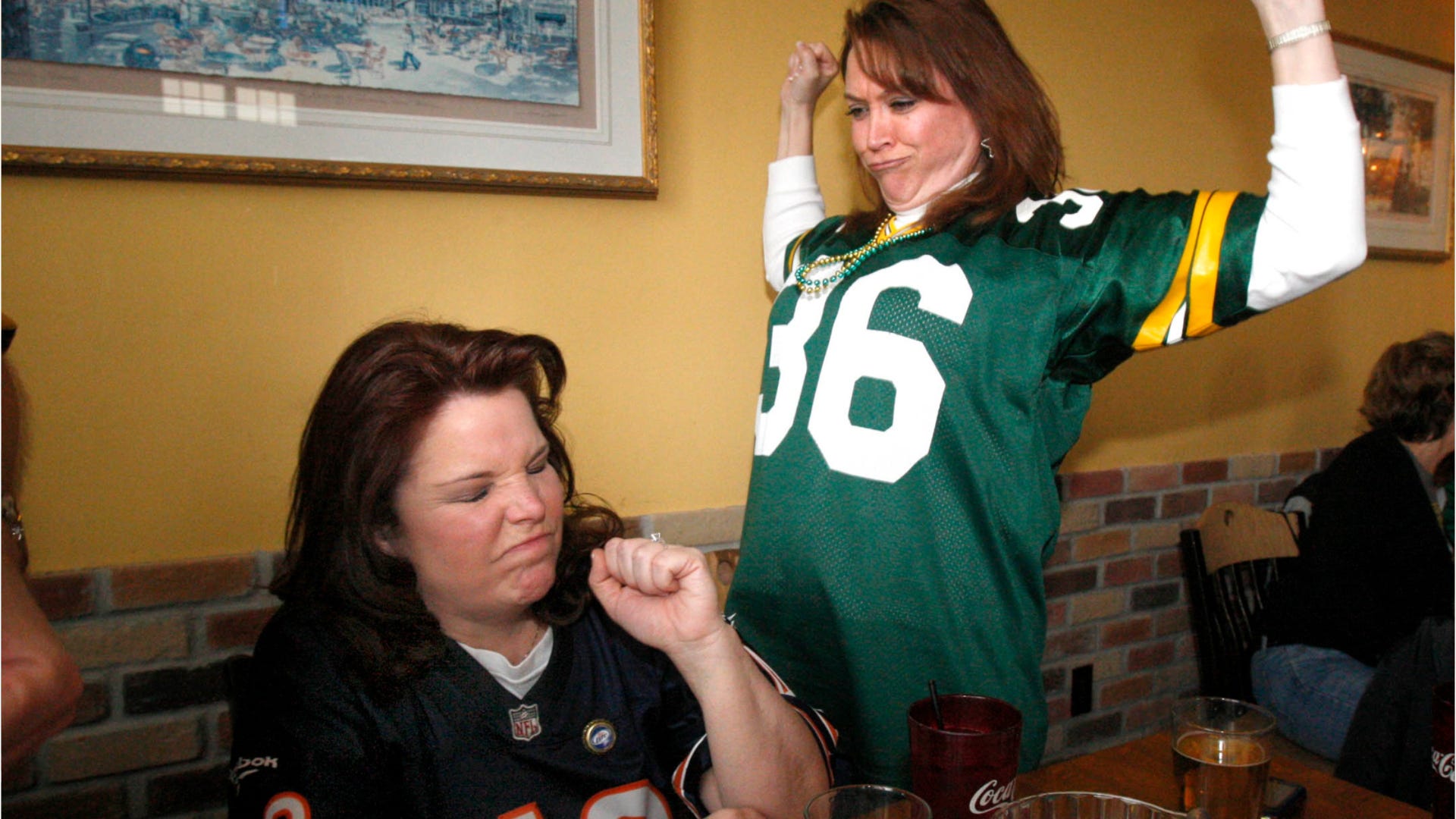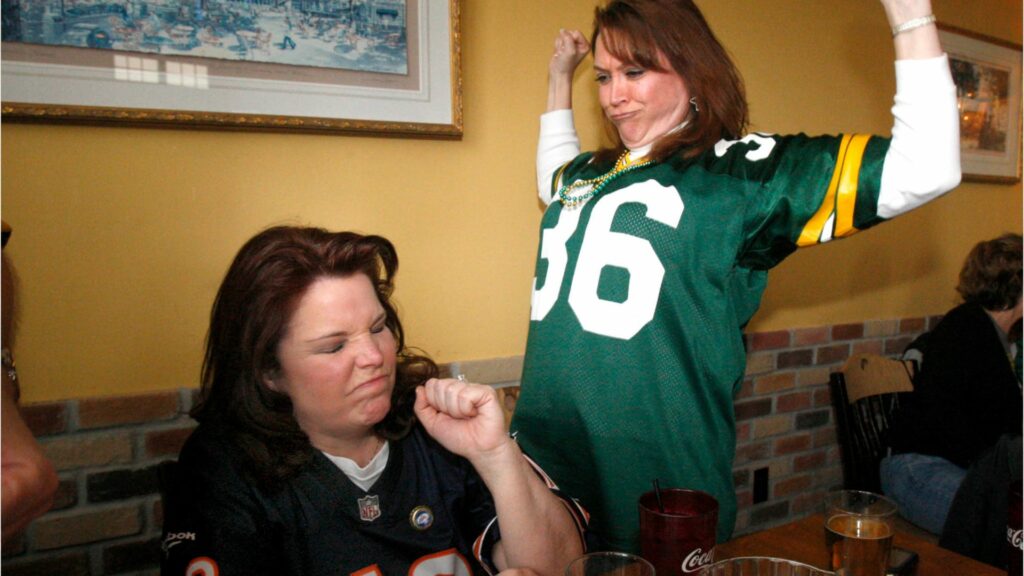
Wisconsin Vs. Illinois: The states compete in tourism, sports, history
Here are just some of the many reasons Wisconsin and Illinois always have their competitive juices flowing.
When you hear disparaging words between Wisconsin and Illinois, it’s usually related to the latter state’s driving. But the rift between the two states goes back way before the automobile.
It might have started when Illinois “took” a chunk of what had been Wisconsin territory when Illinois became a state.
Wisconsin and Illinois were both carved out of the Northwest Territory, the lands claimed by the United States in the 18th century west of Pennsylvania, north of the Ohio River and east of the Mississippi River, up to the border with Canada. Much of the land was already occupied by several Native American peoples, including members of the Potawatomi, Ho-Chunk, Ojibwe and Menomonie tribes.
Under the ordinance that created the territory, Illinois’ northern border should have been leveled off where it met Lake Michigan. Wisconsin was to get everything north of that along Lake Michigan’s west coast. (Including what is now Michigan’s Upper Peninsula — but that’s another story.)
But organizers of Illinois’ bid for statehood convinced Congress to move the border slightly north, giving the new state better access to the lake. That gave Illinois, when it became a state in 1818, about 8,000 square miles from the land that eventually would have been Wisconsin — including the land that became the city of Chicago.
And that’s how Illinois shortchanged Wisconsin for the first time — but not the last.
Peshtigo Fire vs. ‘Great’ Chicago Fire
Even historic tragedy turned into a competition between the neighboring states.
On Oct. 8, 1871, fires that had been started to clear some trees turned into a firestorm near Peshtigo, in Marinette County. Fueled by fierce winds and very dry conditions, the fire raced across Door County and into the Upper Peninsula.
More than 1,500 people were killed, and about 1.2 million acres were destroyed. It remains the deadliest fire in U.S. history.
And yet much of America hasn’t heard about it because, you guessed it, Chicago.
The same day the Peshtigo fire raced across northeast Wisconsin, a fire started in the barn of the O’Leary family in Chicago. (By most accounts, it wasn’t the cow’s fault.) The fire spread through the heart of the city; about 300 people were killed, and more than 100,000 were left homeless.
A horrible tragedy, but it was no Peshtigo.
But it happened in Chicago, a bigger city, a city on the move — and a city that knew how to get the word out. Donations to rebuild Chicago came from around the world — the Chicago Public Library was built from donations from as far as Germany and Britain.
Even Milwaukee chipped in. The city sent firefighting equipment, and Jos. Schlitz Brewing Co. donated barrels of beer — a good business move, too, since the city’s breweries all burned down. (Although some question the veracity of the story about Schlitz’s generosity, the brewery’s sales in Chicago doubled soon after.)
Meanwhile, Peshtigo is still trying to get some respect.
More: Packers vs. Bears, Brewers vs. Cubs: Wisconsin’s beef with Illinois run deep in realm of sports
Milwaukee loses its Major League status — thanks to a guy from Chicago
The Braves’ arrival in Milwaukee in 1953 put a punctuation mark on the city’s decade-long quest to be a big-league city — by actually bringing a big-league team to the city.
In their first year in Milwaukee, the Braves broke major-league attendance records — and led the majors in attendance for the next five years. But when attendance began to slide by 1960, the owners began considering selling the team.
Chicago businessman Bill Bartholomay, who had been rounding up investors to buy his own baseball team, heard that the Braves might be available. Things moved quickly, and Bartholomay’s group bought the team in 1962.
At the time, the Chicago-based owners pledged to keep the team in Milwaukee. But that didn’t last long.
Soon after buying the Braves, Bartholomay and the “Chicago Boys,” as then-Milwaukee Mayor Henry Maier dubbed them, were approached by leaders in several cities urging them to move the team. As late as April 1964, Bartholomay said: “We are definitely not moving. We’re playing in Milwaukee, whether you’re talking of 1964, 1965 or 1975.”
But within months, it became clear the Braves were heading to Atlanta. Only the ballclub’s lease for County Stadium — which ran through 1965 — kept the Braves in Milwaukee for a final season. Further litigation tried to prevent the team from moving, but it was unsuccessful.
Bartholomay remained Baseball Public Enemy No. 1 in Milwaukee until 1974, when as chairman of the Atlanta Braves, he signed off on the trade that brought Hank Aaron back to Milwaukee to finish out his career — this time as a Brewer.
Culture wars result in a run to the border — from both directions
Despite being neighbors, Wisconsin and Illinois often have had different attitudes about cultural touchstones — leading to trouble at the border from both directions.
Oleo: In a nod to the powerful dairy industry, for decades it was illegal in Wisconsin to sell oleomargarine that was colored yellow to look like butter. But many in America’s Dairyland didn’t like having to add the yellow coloring themselves, so they would drive south to Illinois to buy the butter substitute there, where it was yellow and, often, cheaper than in Wisconsin. “Oleo runs” were a part of Wisconsin lore until the state ended the ban on yellow margarine in 1967.
Alcohol: For much of the 1970s and ’80s, Wisconsin was young Illinois’ happy hour destination. In 1972, Wisconsin lowered the state’s legal drinking age to 18, turning the Badger State into a magnet for young Illinois drinkers. (In some circles, the state line was known as the “blood border.”) Bowing to external pressure, Wisconsin’s drinking age was nudged higher in 1984, to 19, and to 21 in 1986.
Marijuana: Illinois lured back some of that border-crossing stimulant traffic in 2020, when the state legalized recreational marijuana, creating another reason for Wisconsinites to head south.
Source link : http://www.bing.com/news/apiclick.aspx?ref=FexRss&aid=&tid=66f14d3c73184d25ac60ab6bf22f76a9&url=https%3A%2F%2Fwww.usatoday.com%2Fstory%2Flife%2Fgreen-sheet%2F2024%2F09%2F23%2Fwisconsins-rivalry-with-illinois-is-rooted-in-history%2F74888595007%2F&c=7025499676456653351&mkt=en-us
Author :
Publish date : 2024-09-22 22:03:00
Copyright for syndicated content belongs to the linked Source.
